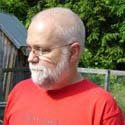I agree that there is a self-critical intention behind Wittgenstein's description of Augustine's model of language. This would be characteristic of Wittgenstein's personality (I'm drawing on the Ray Monk biography); as austere as it appears, Wittgenstein's philosophy extends & develops the concerns of his own psychology / psyche. And despite Wittgenstein's despairing tone in the Preface, Philosophical Investigations is more "put together" than it appears--than it is intended to appear.
I am also convinced by Deacon's argument as you summarize it. I am particularly struck by the deconstructive move that collapses the various culturally-induced dualisms that tend to structure our reality. Such indeed are the "bad habits" of thought, but like other bad habits they are devilishly difficult to leave behind. What begins as a critique of language & the way in which it structures thought leads, inexorably, in Wittgenstein, to a philosophical way of life that demands of the adept that he/she be conscious every minute: Roshi Wittgenstein. I cut my philosophical teeth on Heidegger's Poetry, Language, Thought so I am pretty comfortable with an evolutionary description of language--language as organism--as long as we are careful to avoid the simplistic reductions of the so-called "evolutionary psychologists," cheif among them Stephen Pinker. In Pinker's 800 page book on language there is one index entry under poetry & it deals with sound-play as a primitive quality of language. (Really, this would go without saying, except that the Standard Model--derived ultimately from Augustine &/or other early thinkers drawing on Classical philosophy--has such a hold on the popular & scholarly imagination--insofar at that imagination considers language at all--that some good Wittgensteinian therapy is in order. The problem is, as noted above, that following Wittgenstein's lead requires a certain amount of discipline.)
Philosophical Investigations
Christopher Robinson & Joseph Duemer read Wittgenstein's Philosophical Investigations


0 Comments:
Post a Comment
<< Home